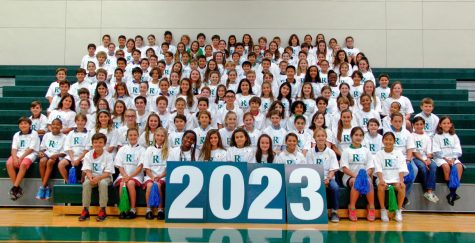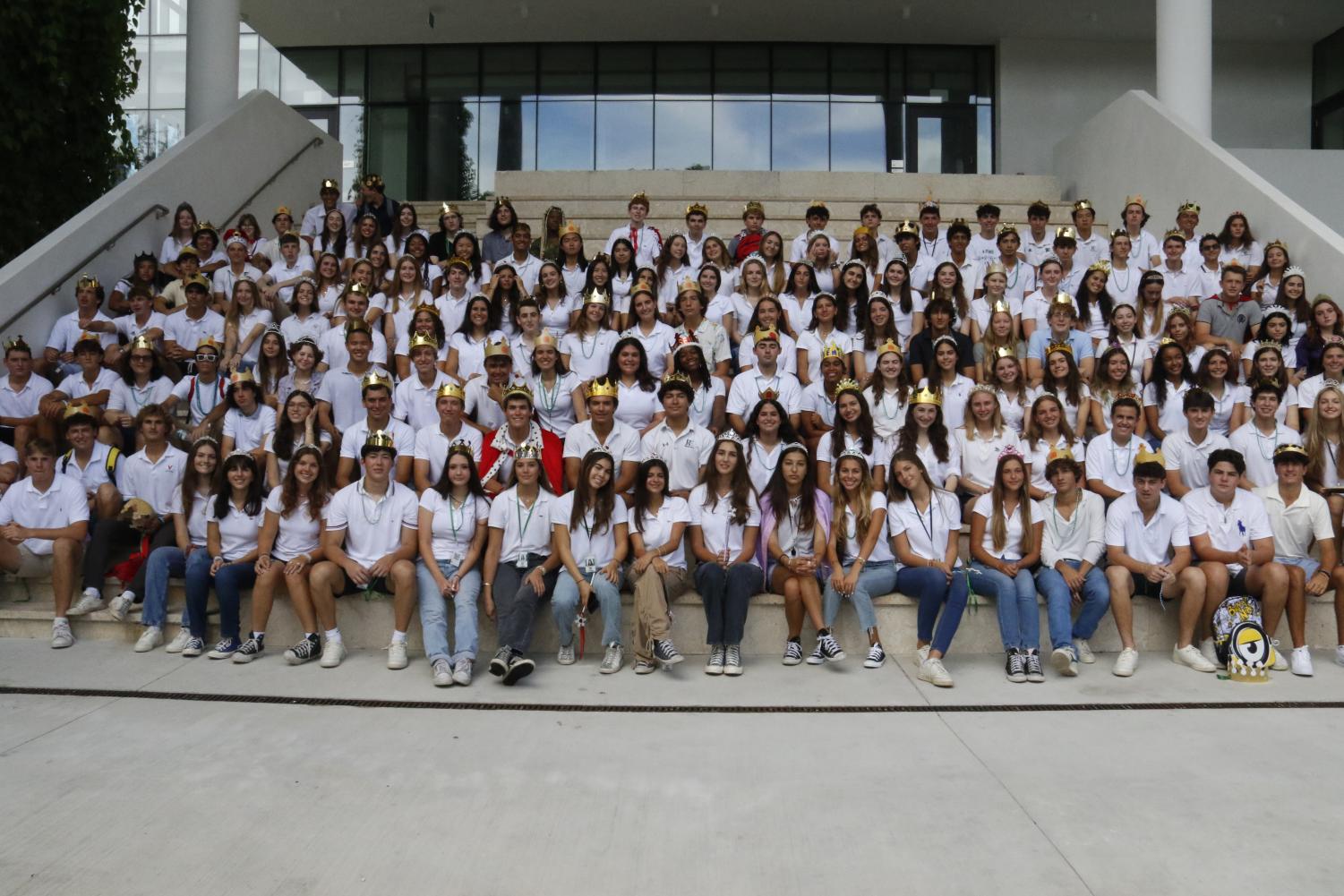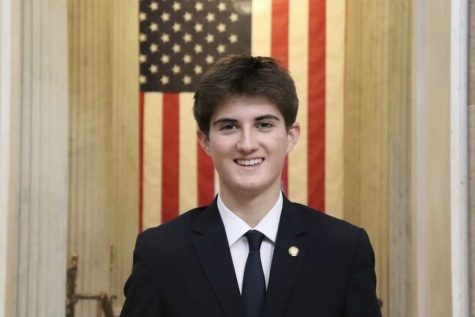Swan Songs
Reflections on an RE journey
May 30, 2023
It’s graduation season at Ransom Everglades. For some members of the class of ’23, the senior slump – or “senioritis,” as it’s more commonly known – has reached its terminal stage. Burnt out after several years of grinding schoolwork and preparation for the grueling college admissions process, many seniors are taking a well-deserved mental break from academics and focusing on cherishing the few moments left in their high school career.
But before my classmates and I place our commemorative bricks in RE’s Quad and receive our diplomas, I thought it’d be fitting to reflect on how my seven-year journey at Ransom Everglades has impacted me as a human. Along with these thoughts, I collected a few other seniors’ perspectives as well. From interviews with peers and some deep rumination on my time at RE, I soon understood that so many members of my graduating class, including me, have had a transformative, albeit complicated, experience at this school.
I certainly am not the person I was when I first stepped onto the Middle School campus in sixth grade, and my RE experience had a lot to do with that shift. I entered this school as a timid and uncertain 11-year-old, somewhat confident of my academic capabilities but not possessing a single clue about the kind of person I was or would become. Seven years, thousands of assignments, and six spirit weeks later, I’m preparing to enter adulthood and use the skills I’ve learned at RE as a college student. Even with all the looming deadlines and painful all-nighters, I genuinely believe that this school gave me the tools to pursue my academic interests and be an engaged citizen in my community.

I’m not alone in feeling that sentiment. In the words of Kyle Ng ’23, “[RE] offered me the opportunity for growth, flourishing, and cultivation, especially because I’m someone who’s more academically minded… The opportunity to meet with people who are so deeply invested and disciplined in their fields has allowed me… to really pursue [academics].” Our school’s illustrious faculty and sharp students broadened Kyle’s academic horizons, and they broadened mine, too. Just think about it this way: how many high schools in the world have these many experts, PhDs and deeply passionate educators on their faculty? Very, very few. The guidance I’ve received from my teachers has expanded my knowledge, generated new connections, and opened new pathways that I would’ve never thought about pursuing. I wouldn’t even be writing this piece right now if Dr. Margini hadn’t suggested that I write for The Catalyst in my junior year.
Along with – and perhaps more importantly than – the academic development I’ve gained here, the lessons I’ve learned about myself over these years will last me a lifetime. At RE, I’ve found a group of people who look out for each other, encourage growth, and celebrate each other’s successes. I managed to go from an insecure little boy to a person who’s not afraid to try new things and commit to my passions, and that’s largely due to the support I’ve received from my friends and from the school as a whole. As my good friend Liv Rubell ’23 put it, “When I first came into RE, I wasn’t really confident in the person that I was. I would walk into the room and try to change myself to fit in… But I think that Ransom, and especially my friend group, fosters an environment where I can be exactly who I am.” As with any high school, RE students divide into their own cliques and friend groups, as Kyler Pace ’23 and Ng both noted. Still, every member of my grade has had the opportunity to get to know one another, be it through our classes, Outward Bound, Circle F, Spirit Week – you name it. I’ve formed bonds with underclassmen through institutions like HIP, clubs, sports, and SGA. To me, our school feels like a community that lifts its members up.
I know what you just read might sound like a rosy, glossed-over picture of our school. In a way, you’re right. My time here hasn’t been without hardships, just like everyone else. The positives I just described are what I feel set our school apart and make it great. As with any institution, though, some areas of our school experience could use some reform.
Take student workload, for example. I’m sure you’ve heard the familiar refrain: “Because you’ve had this much work in high school, college will be a breeze!” That might be true, and many students (including myself) have bought into that idea. Pace shares that sentiment, saying that “I think that all in all I will be in a better place going into college because I’ve gone to school in such a rigorous environment.” So does Rubell, who stated, “because I’ve learned how to deal with a high workload at Ransom, it’s going to help me get further in life.”
Still, the virtuous task of preparing kids for college (which, after all, is the purpose of a college prep school) shouldn’t have to come at the cost of students’ mental health. To put it bluntly, RE has an extremely high-pressure, competitive academic environment, and that often doesn’t help students’ wellbeing or sense of worth.
That mental impact can have physical implications, too. In the darkest moments of my senior year last fall, burdened by after-school tournaments, college applications, and stacked assignments, I habitually stayed up until three or four in the morning to finish my schoolwork. This practice is obviously unsustainable, and my body eventually shut down. Sick with the worst illness I’d ever had in my life, I couldn’t gather the strength to leave my bed for three days straight.
Unfortunately, this experience is all too common here. Describing his experience with mental health on campus, Pace asserted that “[student mental health] is an area where the school has been lacking all my seven years of Ransom. I felt that sometimes as a student some things that were asked of me were unreasonable, and when I confronted those with my teachers, I felt like I didn’t have any choice but to pull three all-nighters in a row.” This is a sentiment many here can relate to – a common gripe around campus is that although the homework teachers assign might not be much on its own, it can become unsustainable when combined with the work assigned in other classes.
While recent efforts to improve student wellbeing on campus are welcome and admirable, they don’t go far enough in solving this issue. This problem goes deeper than chalk days in the Quad or meditation sessions; it requires action at the highest levels of RE’s hierarchy. School leadership must act to curb the amount of academic pressure students bear at RE.
How might this look? Well, it could start with a frank admission from our faculty and leadership that the workload in its current state imposes too much of a burden for teenagers to bear. Students’ responses to the Challenge Success surveys we took during advisory in April will undoubtedly reflect that reality. Then, with the understanding that something must be done to correct this issue, our school could experiment with eliminating busy work in favor of assignments that foster critical thinking and teamwork. Nobody should have four or five hours of homework a night. Lower frequency and better quality of assignments would benefit student wellbeing and increase learning.
Along with these measures, our school must continue the work it has already begun in improving student mental health services at an even faster pace. Simply having someone to talk to could go a long way in improving many students’ happiness and their ability to pursue their education. Expanding counseling and fighting the stigma around seeking help will create a culture of acceptance and respect on campus.
We must change the focus of RE education away from high test scores and selective admissions and towards nurturing students into caring, motivated, and committed members of our society. Students—and the school as a whole—will be better off because of it.
With all its positive attributes and its flaws, there’s no doubt that each senior’s RE experience has meant something to them that they will carry for the rest of their lives. As Rubell so accurately put it, “[RE] has become more than just a school to me… It’s become a part of who I am.” For the sake of the classes that come after us, we must promote what makes our school so great and fight to change what doesn’t.

